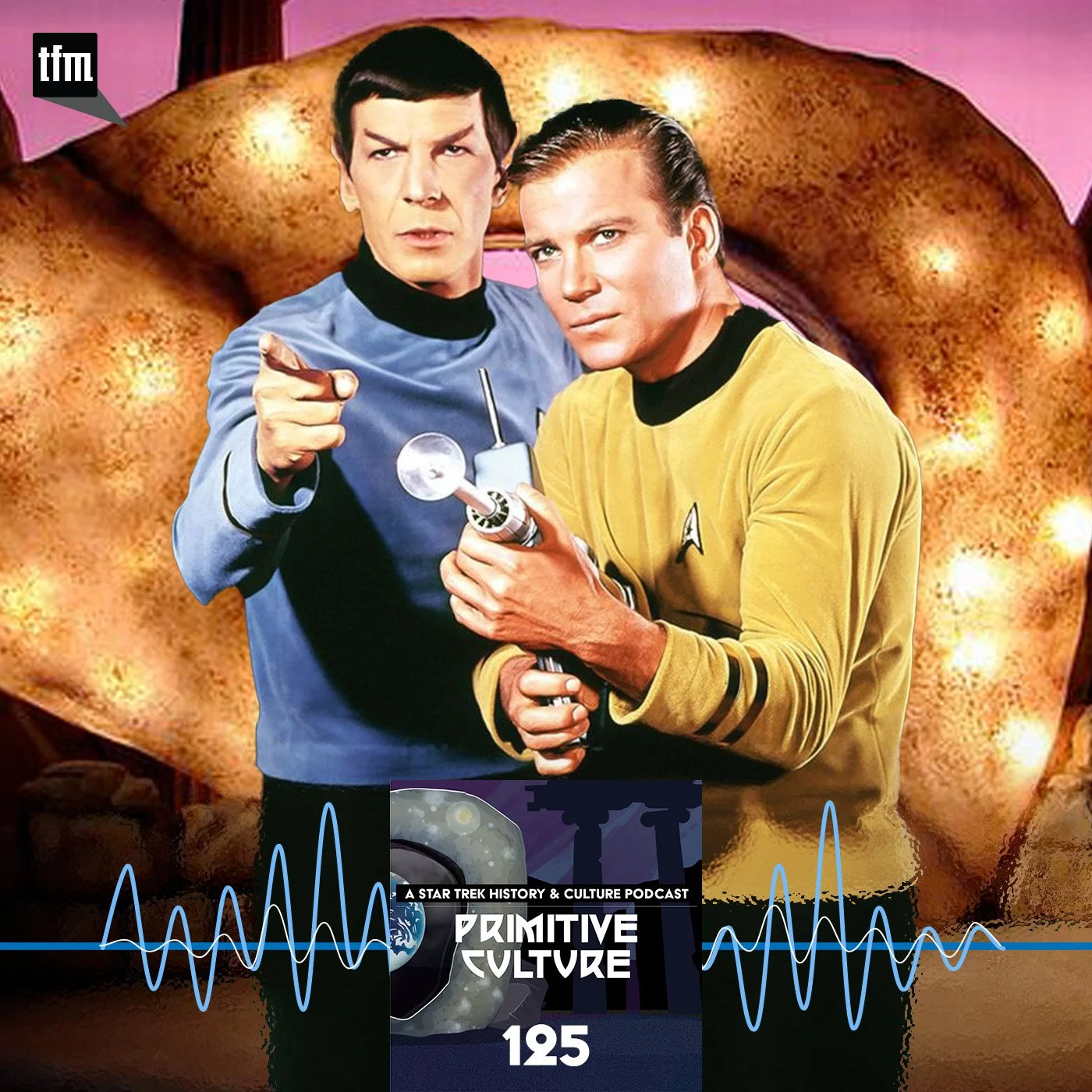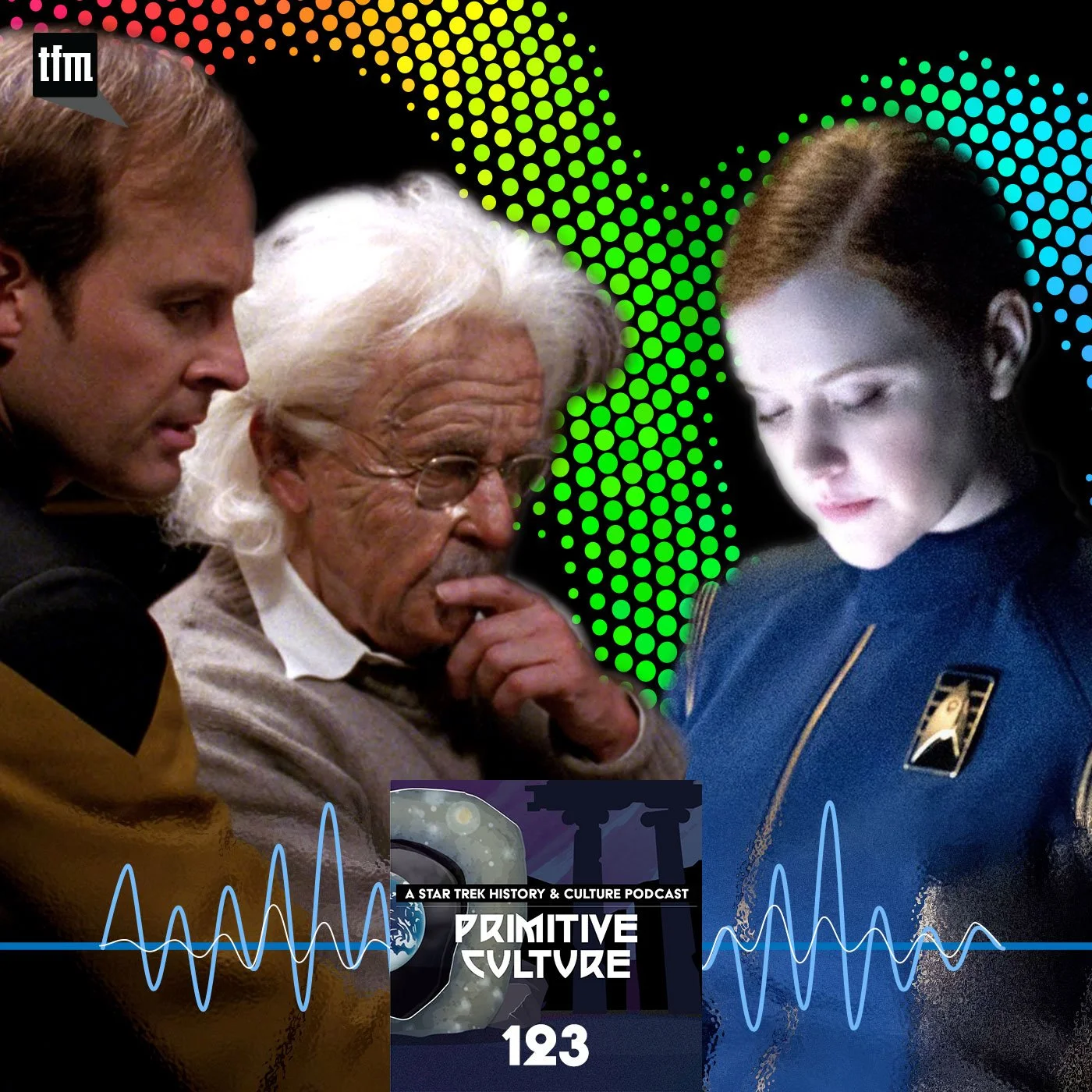Star Trek and Allegory.
Running Time: 1 hour 26 minutes 51 seconds
Download / RSS / Send us a message / Discuss the show / Support Trek.fm
In February 1964, Gene Roddenberry’s television show The Lieutenant produced an episode dealing with racism in the US military. The episode proved so controversial that NBC refused to pay for it, let alone broadcast it. A month later, Roddenberry pitched Star Trek, a science-fiction format that would allow him to address such incendiary issues indirectly, by telling stories set in the future as allegories of contemporary concerns. Although occasionally ham-fisted, Star Trek’s early allegories trod provocative new ground, and, half a century later, the allegorical mode is still a key part of Trek’s storytelling.
In this episode of Primitive Culture, host Duncan Barrett is joined by Zachary Fruhling of Meta Treks and To The Journey to discuss the relationship between Star Trek and allegory, considering both Star Trek as allegory and instances of allegorical narrative within individual episodes. From Aesop’s Fables to medieval romance—and beyond—we trace a line of allegorical writing that leads all the way to the twenty-fourth century.
Chapters
Intro (00:00:00)
Morals, Meanings, and Messages (00:06:15)
Loose Canons (00:17:13)
An Allegorical Taxonomy (00:35:55)
Fables and Fools (00:42:07)
Personification (01:09:45)
Closing (01:22:15)
Host
Duncan Barrett
Guest
Zachary Fruhling
Production
Tony Black (Editor) C Bryan Jones (Executive Producer) Matthew Rushing (Executive Producer) Ken Tripp (Executive Producer) Norman C. Lao (Associate Producer) Amy Nelson (Associate Producer) Richard Marquez (Production Manager) Brandon-Shea Mutala (Patreon Manager)











